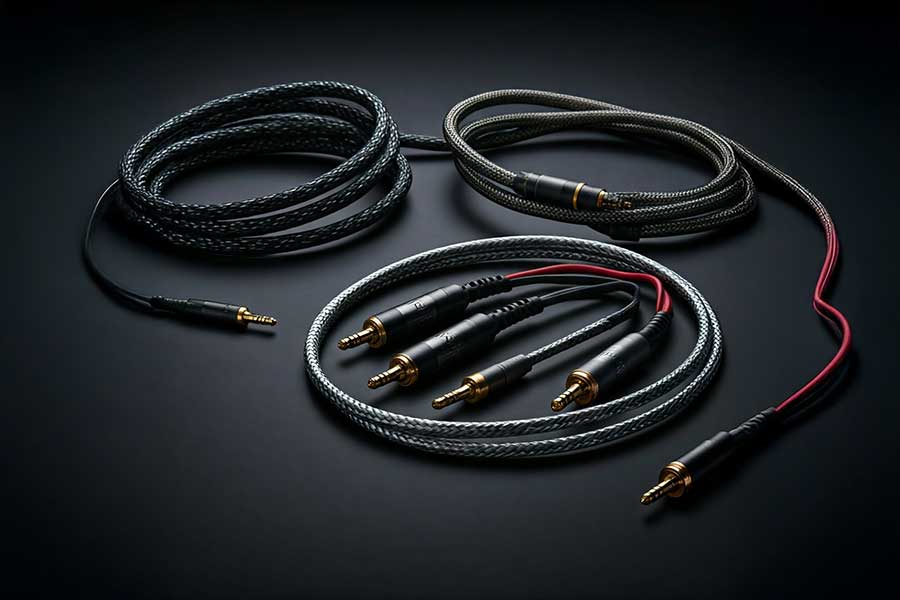
Audio is an extremely important element for music lovers and professional audio engineers. Whether it's listening to music, watching a movie, or making a recording, choosing the right equipment is critical to maximizing sound quality. Among these equipment, audio cables also have an important place. So, what are the most efficient types of audio cables, and why are some better than others? In this article, you will find answers to all your questions about audio cables.
What Is an Audio Cable and Why Is It Important?
An audio cable is an electrical conductor that carries an audio signal from one source (for example, an amp or sound card) to an output (for example, speakers or headphones). The quality of the cables has a direct impact on the clarity, clarity and overall perceived quality of the sound.
Why Is It Important?
- Signal Transmission: Audio cables must carry audio signals with the least possible loss.
- Noise Cancellation: It should block out noises such as electrical interference and radio frequencies from outside.
- Signal Integrity: It should best reflect the characteristics of the original audio source while preserving the integrity of the audio signal.
The Most Efficient Audio Cable Types
Audio cables differ from each other by their different types and features. The most commonly used types of audio cables are:
1. RCA Cables
- Uses: Commonly used in stereo systems, home theaters, and hi-fi equipment.
- Features: It usually has double-ended, red and white colored connectors. It is used to carry audio and video signals.
- 2. XLR Cables
- Uses: It is frequently used in professional sound systems, live performances and studio recordings.
- Features: It has metallic, triple-pin connectors. It provides a balanced signal transmission and is more resistant to noise.
3. TRS Cables
- Uses: Used in guitar amps, headphones, and other portable audio devices.
- Features: It typically has a single-end connector with a diameter of 6.35 mm or 3.5 mm. It can carry both mono and stereo signals.
4. Optical Cables
- Uses: It is used to transmit digital audio signals. It is preferred in home theaters and high-quality sound systems.
- Features: Transmits sound using light signals. It is resistant to electromagnetic interference.
What to Consider When Choosing the Best Audio Cable
- Cable Material: Conductive materials such as copper, silver, or gold-plated copper affect sound quality.
- Shielding: It should have good shielding to block out outside noise.
- Thickness: Cable thickness reduces signal losses.
- Connector Quality: Connectors that are sturdy and provide good contact are important.
- Usage Area: The device and environment in which you will use the cable will be decisive in choosing the right cable.
Result
The most efficient audio cable will vary depending on your usage and budget. For a high-quality sound system, you can choose the right cable by doing good research and consulting expert opinions. Remember, choosing the right cable will take your audio experience to the next level.
Additional Information:
- Balanced and Unbalanced Cables: Audio cables can be balanced or unbalanced. Balanced cables are more resistant to noise and are preferred in professional applications.
- Cable Length: Cable length can increase signal losses. It is ideal to use cables that are as short as possible.
Cable Maintenance: By checking your cables regularly, you can prevent any damage.
